
Without doubt this has been the most difficult piece I have tried to write, I can’t tell you how many times I have drafted this in my head only to completely delete it by the time I put my fingers to the key board. It requires a certain amount of personal disclosure I have never wanted to make.
It’s no secret that Oaxaca has been my sanctuary for years, the place I went to recharge a depleted soul. It’s where I found the mental space to learn more about things I was passionate about – food, agricultural methods, heirloom seeds, and craft production of artisanal goods. I stumbled along, simultaneously learning Spanish while trying to engage with a culture and people that were completely new to me.
It was in 2009 when I realized that I had fallen deeply and irrevocably in love with Oaxaca, and wrote my first love poem in Spanish, very much a riff on Edward Norton’s tirade in Spike Lee’s post 9/11 love letter to NYC in the 25th Hour. My Oaxaca missives laid the foundation of what would eventually become the Mezcalistas blog.
I always like to tell people I was a late bloomer, and that Oaxaca was the place where I finally was able to piece together where I wanted my life to go. It was because of my experiences in Oaxaca that I was able to handle a series of tragic events in my life in 2012, the loss of my home of 23 years followed immediately by the sudden death of my sister and me taking on the guardianship of my nephew. Spending time in a place where life’s tragedies are met with a calm acceptance, where time has its own meaning, where death and grief are a part of life, not to be stored in a box under the bed and forgotten over time, it gave me a strength to be able to move forward and bear the pain that will always exist.
I say all this with full knowledge that Oaxaca is not some utopian paradise. My rose colored Oaxaca glasses were taken off years ago, and in these past few years, the changes I have seen in Oaxaca have only reinforced what a complicated place it is. It took years for the city to recover from the uprisings of 2006-2007, and even with that it has been an up and down process, with the ongoing teacher strikes, and bloqueos, and growing crime constantly weighing on the city and state.
So, what went wrong this time? Why am I even writing this post?
One afternoon, my 13yr old kid and I joined a group outside of Oaxaca for a meal at a friend’s ranchito. It was beautiful to be in a house in the country, eating with new and old friends. As we were finishing up and getting ready to head back to Oaxaca, three men with guns broke into the house and robbed us of money, phones and jewelry. I was actually outside of the house when the men entered, trying to find toilet paper, when I stumbled onto one of the men, a very young guy holding what initially looked like a toy pistol. He took me inside the house and I saw everyone else on the floor, and quickly located Isaiah in the middle of the group. The oldest man, and most aggressive of the three, pointed his gun at each of us, demanding our money and jewelry. I never could get to Isaiah, hold his hand, and in fact, could only watch from afar as the old man pointed his gun at Isaiah, telling him not to move. They then tied us up with zip ties and locked us in a bathroom.
The whole robbery took maybe 20 minutes. We waited another 20 or so minutes to ensure they were gone before breaking out of the bathroom and freeing ourselves. No one was hurt and it was clear they had no interest in anything beyond our money and valuables. Most sadly for Isaiah they took his backpack filled with his collection of fidget spinners and the kilo of barbacoa he had bought earlier that day in a market. We were able to call the state police after we escaped the bathroom, and then eventually were escorted to the local police station where we could give our report of what happened. In all, the post robbery police dealings took about 8 hours between waiting for police to arrive, waiting for the local police to take statements, and then finally giving the statements. Only three of us spoke both English and Spanish.
I am lucky because I have a huge support network of friends and connections. I never once felt alone in the situation, but I did feel my foreignness in a way I hadn’t before in Oaxaca. I kept the story under wraps, primarily so my mother, who was back in the US, would not get wind of it and completely freak out. There is also an ongoing investigation that I do not want to hinder, if in fact anything comes of it. Also too, how do I even begin to process and accept that my place of sanctuary, my safe place in fact, no longer feels that way, and probably never will.
While in Mexico City at the end of the trip, I came across an article about the recent State Department warning on travel to Mexico specific to tainted alcohol at resorts. The State Department just issued a new travel warning highlighting problems in Cancun and Los Cabos. The previous official country wide travel warning was issued in December of 2016, when I was last in Oaxaca. I have always taken these warnings with a grain of salt – we traveled to Juchitan on this trip, and on highway 200. In the past when asked about safety in Oaxaca, I have always said I felt secure and safe, but it is important to be mindful of pick pockets and occasional street crime. When I travel outside of the city, I always take precautions. And of course, I speak Spanish. And for the record, when I am traveling out to meet new mezcaleros, or explore remote mezcal producing areas and towns, I do not travel alone and always with a local, preferably someone who has an existing relationship with where we are going or who has knowledge of the area. We stay abreast of areas that might be having municipal issues, or where there is a heavy presence of federales or state police. There is unrest in Oaxaca, and there has been for a long time, but it remains pretty hidden from the eyes of visitors.
The vast majority of people who visit Oaxaca don’t really know much beyond it being a beautiful old colonial town, with delicious food and beautiful arts. With the growth of the mezcal industry, more people come for that and believe it is not unlike visiting Napa or Sonoma. It might be headed in that direction but it is definitely not there. I can’t tell you how many people I saw walking around on the streets of Oaxaca, their iPhones in hand, discussing how cheap it was. This in a place where the minimum wage is 60 pesos a day, or $3.33 based on the current exchange rate of 18 pesos to the dollar. An average salary in Oaxaca is 1200 pesos a week, or $66.67 a week. The only reason why Oaxaca is so “cheap” is because the current exchange rate is pretty terrific. When I first started traveling in Oaxaca, the exchange rate was about 10-11 pesos to the dollar. A terrific rate just 3-4 years ago was 14 pesos to the dollar.
There is a growing economic divide in Oaxaca. Narco pressures from the rest of the country coupled with a bad economy and more and more people being deported from the US back to Oaxaca has created a perfect storm of rising crime and other issues. Despite all indications that Oaxaca is a thriving town, it is one of the three poorest states in Mexico (Guerrero and Chiapas are the other two). And yes, while the mezcal industry has been good for Oaxaca, that doesn’t mean it has been good for Oaxacans – that is a mixed bag of results. There is so much corruption on all levels (just as a side note, much of this corruption could be easily legalized as we have done in the United States by replacing graft with lobbying and patronage with a <supposedly> transparent system of open RFPs for all public works projects), and has existed for so long that it is completely ingrained in the DNA of everything.
I don’t say any of this to scare people away from visiting Oaxaca – please, go because it is amazing and also because its economy is completely reliant on tourist dollars. Just go having done some homework, and be aware of where you are going. It is not Disneyland.
I have had a gun pointed at me three times in my life— once in Washington, DC after leaving a nightclub in an area of town that had been hobbled by the crack epidemic in the 1980s. Tracks was the best nightclub ever and being young and invincible, we would of course risk a mugging to go there. That time ended peacefully as well, the mugger beyond frustrated that the four of us could only come up with $5 between us. The second time was in my own home, when a police officer entered thinking there was a burglary in process. Our neighbor downstairs, a dentist office, had its alarm triggered and the police responded and thought our place was the address. Our door was unlocked because we live in a small, Mayberry like town, and my kid had gone out for a bike ride. It too, ended peacefully, and it is now clear with the police department that the alarm system belongs to the dentist office. We also lock the door all the time now.
When I began talking to friends in Oaxaca about what had happened, they of course were shocked because in spite of the rise in crime in both the city and state, a story of a group of foreigners being robbed in such a fashion was unheard of. There were tales of muggings on the streets, of offices being broken into, of an increase in violent crimes against women, particularly in rural communities in what one assumes is a backlash against increasing rights for women. These are all anecdotal because the one thing that is impossible to get are hard statistics. Contacts in law enforcement and social services in Oaxaca told me it is estimated that only 5% of crimes are reported in Oaxaca. 5%! In a national study, it is estimated that 92% of all crimes in Mexico go unreported and/or uninvestigated. That tells you everything you need to know about faith in law enforcement – there is none. The rise of vigilante groups and self policing communities is completely understandable when you see a statistic like that.
I don’t want to write a piece like this, I don’t want to think that my experience might negatively impact tourism in Oaxaca. But I also don’t want to brush things under the rug and pretend that all is well in my beloved second home. I think my experience needs to be a wake up call for everyone – for folks traveling there to understand more about the place they are visiting, for people and companies that operate in the world of tourism to have a contingency plan in case there is some sort of emergency, and for the government of Oaxaca to take seriously its rising crime problem and to do something meaningful about it before it becomes another Veracruz or Sinaloa or Guerrero or, well the list could go on.
If it had only been me traveling, I am pretty sure I would have turned this into one of my classic stories on the road. It’s rich material to mine. I could find a way to tie it into the crazy thing that happened in Mexico City, at the end of the trip where I was almost arrested for passing a counterfeit 200 peso bill while at the Feria de Chapultepec. The bill was part of a stack of money I had gotten at a Bancomer Bank just off Reforma the day before. I told this to security at the Feria, pulling out my receipt from the transaction. My kid and his friend were on a ride while this was happening. I had gone to buy a bottle of water while I waited for them, holding all wallets, phones, backpacks, etc. When told to go with security I held my ground, refusing to go with them, explaining I could not and would not leave my kid, that I was a tourist, that this was not my fault. They finally agreed to leave me be, taking only the counterfeit bill with them. Later that evening, while back at where we were staying, I went through every bill with my friends and found one other counterfeit bill from the stack I got at the bank.
Maybe I could also try and mine the story for some deeper message from the universe – ‘well Susan, you were due after 20 plus years of traveling thru Mexico without a major incident.’ I could use the story, the situation in Oaxaca, as a plea for people to stop buying drugs, that with each purchase there is a direct link back to Mexico and the violence there. That anyone who does is directly responsible for every murder and robbery there. I might even be able to end the story with that final indignity, at the Mexico City airport, where my bag was fully searched and my <very expensive and hard to find> face cream, the one that has been through airport security more times than I can count, and my travel size contact solution were confiscated because of the severe security threat they presented. How that final thing was what broke me, how I walked over to the female federale standing close by and burst into tears as I told her all that had happened and how she took my hand and squeezed it and told me how sorry she was. Rich stuff for sure in story telling land.
But as long as I see that moment replay over and over in my head, when Isaiah was lying on the ground, when there was a man pointing a gun toward him, well, I just can’t.

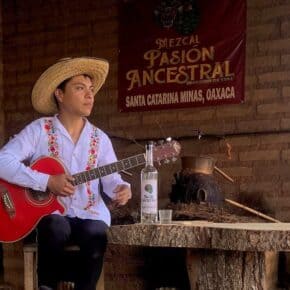
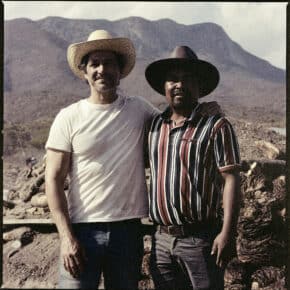
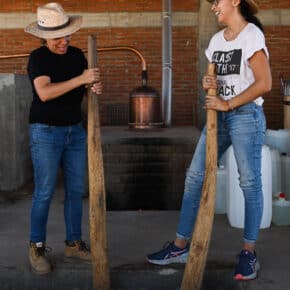
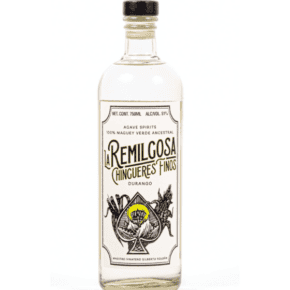




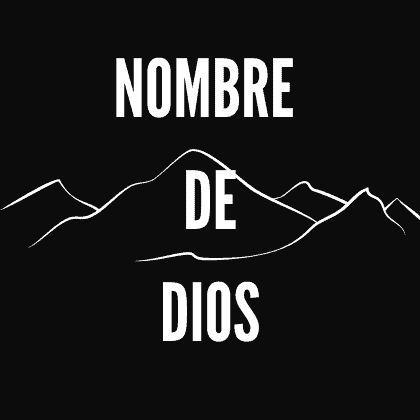



Susan, I had no idea. Thanks for sharing this important story and information. For those of us everywhere who live in “bubbles,” this is a wake-up call.
Makes my heart sad for you both, and for our beloved city.
Without a doubt, you experienced both the yin and yang of Oaxaca. Thanks Susan for your honesty on this. And know how glad we are you’ll be back!
d…
It’s so sad and scary Susan I’m sorry for your horrible experience. Today I walked to town in Brattleboro Vermont and my roommate warned me to be careful walking through the cemetery a common shortcut. There was a mugging there a few days ago. Vermont has an opioid epidemic. Similar to you I’ve lived and loved vermont for many years. I consider oaxaca and Vermont my homes. Now both are riddled with drug problems and crime. Mexico is more complicated given the animosity of 45 towards that country and the presence of US citizens living in an easier economy because of US politics. I have heard of 4 armed robberies of gringos in oaxaca in about one year. I’m sorry for Isaiah and all the people who suffer because of crimes. Class, inequality, poverty, drugs and other complicated factors raise the risk of hostile crime. There is so much that needs to change in our world. Can we continue to make it better by being kind and fair and generous? I don’t have the answer.
I have lived in Oaxaca for over 20 years and it is very sad to think of this truly special place morphing into something ugly and dangerous. Thank you for writing this story. It’s imporatnt to have a full picture.
Linda Hanna
A tough task for a writer. You did a fine job. I totally agree we extranjeros who live here and love this state/country need to be alert, informed, and realistic about what risks we are comfortable taking. Thank you for sharing. So happy you all survived and hope you overcome el asusto quickly.
I continue to be in awe of your writing even as I read through shock and awe. I am so sorry for my dumb phone comment now that I know what you went through and how terrifying that must have been for you and Isaiah. So glad that you are both physically okay but mentally will take a little longer. Love to you both.
Oh Susan, so sorry to hear this.
Terrifying and so sad. Glad you and Isaiah are ok.
You are my hero! Hope the telling of the tale
is cathartic and that it’s the last one like this you tell.
xx/dd
Interesting trying to read a story like this,
I’m from Oaxaca and i love Oaxaca.
People who are from another place
Are actually poited for bad people,
In order to still them,
that’s why they have to bé with right people,
And go with someone else from this town everywhere
They go if they don’t know yet arround
For us it’s easy to keep us safy here
Our color, our idioms, i mean, an example:
My first lenguage is ZAPOTEC, it’s one of the most 20
Types of leguages we speak here,
I really would love everybody to came here one day;
Everywhere is dangerous, everywhere is a lot of crime
We just have to have precautión and be sure to know
A correct people around.
Thank you all:
My mail is espina-dorada@hotmail.com
I olso pruduce MEZCAL.
Thankyou all again.
Placido Hernandez Hernandez
Susan, con lagrimas en los ojos, tras leer sobre tu terrible experiencia, no tengo mas palabras para expresar lo avergonzado que me siento, que decirte LO LAMENTO!
Mi país se encuentra en una terrible crisis por su incapacidad de ejercer justicia, desde los mas altos niveles hasta los mas pequeños. Ojalá y sigamos viéndote en Oaxaca y en cualquier otro lugar de México al que quieras ir, pues como lo señalas, los Mexicanos somos gente buena y apreciamos muchísimo a la gente de paz y amor como tu. Una vez más: mil disculpas como Mexicano por haber sido incapaces de tenerte segura, los daños y sustos por los que pasaste y por todo lo que perdiste. :*-(
Wow, Susan. That is an intense and cathartic cautionary tale. So glad you and Z are okay. Many lessons from the experience for all involved. I know it has smudged your safety glasses regarding your second home…. and, I know you know it is no more dangerous there than it is here in the US. I hope over time that you and Z and others there are able to incorporate all the lessons to wherever you are in the world, and that like the other times you have been threatened it loses the sting of happening in your much beloved second home of Oaxaca. Sending a big hug, love and light your way.
Sorry, Janice, but your comment exemplifies the blinders many Americans and some Mexicans have on about Mexico, not only expats and tourists.
To say that “it is no more dangerous than it is here in the US” ignores the fact, very strongly made in Susan’s piece, that 95% of crime goes unreported in Mexico. That is a big difference. As someone who has lived in Baltimore and DC, and has relatives in Detroit, I am aware of what it is to live in a city with a high murder rate. I have been mugged in Brooklyn at the height of the crack epidemic, and had to deal with the police over that incident, as well as to notice how the police were besieged with citizens complaining about gunshots in areas that were far more dangerous than my block, carrying pails of bullets they’d picked up on their block into the police station.
But that’s still a different story than living in a place where corruption and indifference rule, and where people fear the police and fear that criminals will target them for complaining.
I have been to Oaxaca recently and wondered what the security situation was like for people who live there. It will be interesting to see whether MORENA can help to establish security and civil society in this beautiful and tragically neglected country.
Hi Susan, I know we had communicated about this not long after it had happened. Your telling of it here is amazing -full of valuable information and insight. You are an incredible writer -one of your many, many talents. I am so glad that you and Isaiah were not harmed physically, but know that an experience like this leaves emotional scars. I hope the process of writing this contributes to your healing.
We all love Oaxaca and Mexico, but know that they are like a beauty and a beast all rolled into one. I hope the tide turns and things improve for those of us who love visiting and living there, and most importantly for the people of Oaxaca and Mexico. They are the primary reason we love being there.
I hope our paths cross again soon. If not in Oaxaca, I’ll come see you again in California. Un abrazo fuerte y beso a ti, Isaiah y tu Mama, MTV
Thank you immensely for this letter. I have been to Oaxaca 25 times over many years. Although my stay has ranged from days to several months at a time I have come to also love this place and have always felt safe. I have joked about feeling less safe in downtown Minneapolis! But reality tells me that time and circumstances change things and not always for the good. I will be in Oaxaca this January and will be more aware than ever before. I’m guessing that this place will gather me in, as it always does, and I will be happy. Time will tell.
I have to say that the police arrested 10 Colombian people doing all kind of illegal activities in Oaxaca, as they, there are many others who come from Central America to try to get US Dlls to continue their trip to the North of Mexico.
We, Oaxaqueños, know that it is not very safe to go to ranchitos out of the city where there are not many people around. It is different if you go to a wedding or a big party.
I am very sorry about your bad experience, i just need to say, be careful where you go, let the authorities of small towns know where are you going and for how long you will be there so they can be watching around. It is their responsibility:
Thank you for talking about your experience. We had the same thing this last Christmas Eve. I walked into my son’s room, to find him on the floor with a machete at his throats and a gun pointed at his head. We were tied up and everything of any value was loaded into our new car. In our seven years here I have always felt safe. We are slowly recovering from the experience and our son has returned once to visit from New York. It was a difficult visit, but we are working things out. Our Mexican friends have said never to bother calling the police….they only take note of what you have and come back for it.
It is very complicated, but I still would not leave for anything.
Susan, you are amazing and I can’t believe what you’ve been through. So glad to hear you and Isiah are ok. I know this experience left a mark on you, but you’re also processing all of this in an impressive way, and hopefully therapeutic way. Thinking of you and sending hugs from the Pacific northwest ?.
As someone who has not yet visited Oaxaca, yet is very intrigued by the culture; my only comment to your, (obviously difficult) report could be perhaps regarded as specifically naive, yet universally appropriate. Life, all around us… is perceived as having the potential for joy and sorrow, satisfaction and disappointment, respect and desperation.
In my travels, the contrast of economic reality to potential wealth is defined by the cultural awareness of some perceived western ideal of success and that society’s incumbent dysfunction. Those who appear to represent “The Empire” sometimes find it difficult to abandon expectations of civility, security, technology and empathy from those who have only tradition and dignity as their cultural base. To finally be able to offer their culture and crafts on the world market also entails disclosure of the many other economic forces in play, like organized crime, government corruption and the insecurity of not achieving some mass-marketed democratic ideal.
While not limited to Mexico or any other romantic destination, this observation is not meant to diminish the trauma of your experience. Yet I do believe that any idyllic escape, (anywhere on the planet) requires not only advanced understanding of the destination, but also complete humility, (never apology) for our request to participate. Ultimately, our ability to learn depends upon the depth of our exposure. And I certainly hope to one day meet you in Oaxaca.
Mexican people suffer every day, under a corrupt government and law enforcement. County needs way more than a teacher’s strike And all of you gringos that live there know it. Desperate people do desperate things. Your bandits needed to to rob you. U S SHOULD BE HELPING NEIGHBORS.
Thanks for your story. I just got back from two and a half weeks in Oaxaca City. I fell in love with it and I’ve been trying to convince my wife to seriously consider moving there. I was born and raised in Detroit so I know a little about dangerous places. Where I live now in South Florida has been recognized as the safest community in the state. But one year ago this week 17 students and teachers were shot and killed and many others wounded. No place is immune to violence. But we must try to overcome the fear, take reasonable precautions, and move on. We will be back in Oaxaca City from September through November for a closer look. The city has too much that is wonderful to avoid it because of the inevitable dark points. I hope we can meet you. Again, thanks for sharing the experience.
Thank you so much for sharing your story. I know how hard it is to share these types of things when you start thinking about all the repercussions of doing so. Have you continued to visit Oaxaca after this incident? Do you have any updates on the current state of things?
Most definitely – have been back to Oaxaca a few times since the incident as I consider it my second home and love it dearly. Oaxaca remains a lovely place to travel and like any city has a certain degree of crime that is far more petty (pick pocket, occasional robbery) than anything else. I believe my experience was an anomaly.
I live in San Francisco, California. People get tied up and robbed in their own homes here, also.
Sorry that you were a victim of crime.
It’s a possibility everywhere you live, and travel, and increases when there is drastic inequity. So though always awful to have this happen, not really surprising.